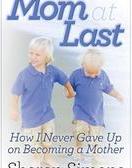Use of frozen embryos is more likely to produce successful, complication-free IVF pregnancies than those that are fresh, a study has found.

A systematic review of more than 37,000 IVF pregnancies showed that there was a reduced chance of mothers bleeding and of babies being born prematurely with low birth weight when the embryos were stored and frozen compared with treatment involving freshly-transplanted ones, the Independent reported.
The review of 11 international studies also found that the death rate immediately before and after birth was lower in babies who were born as a result of transferring frozen-thawed embryos into the womb compared with the transfer of fresh IVF embryos.
The findings represent a “major paradigm change” in assisted reproduction and could lead to a change in the current policy of preferring fresh embryos to frozen ones, scientists said.
“If pregnancy rates are equal and outcome in pregnancies are better, our results question whether one should consider freezing all embryos and transferring them at a later date, rather than transferring fresh embryos,” said Abha Maheshwari, a lecturer at the University of Aberdeen who led the study published in Fertility and Sterility.
Continue Reading the Complete Article on Times of India by Clicking Here

